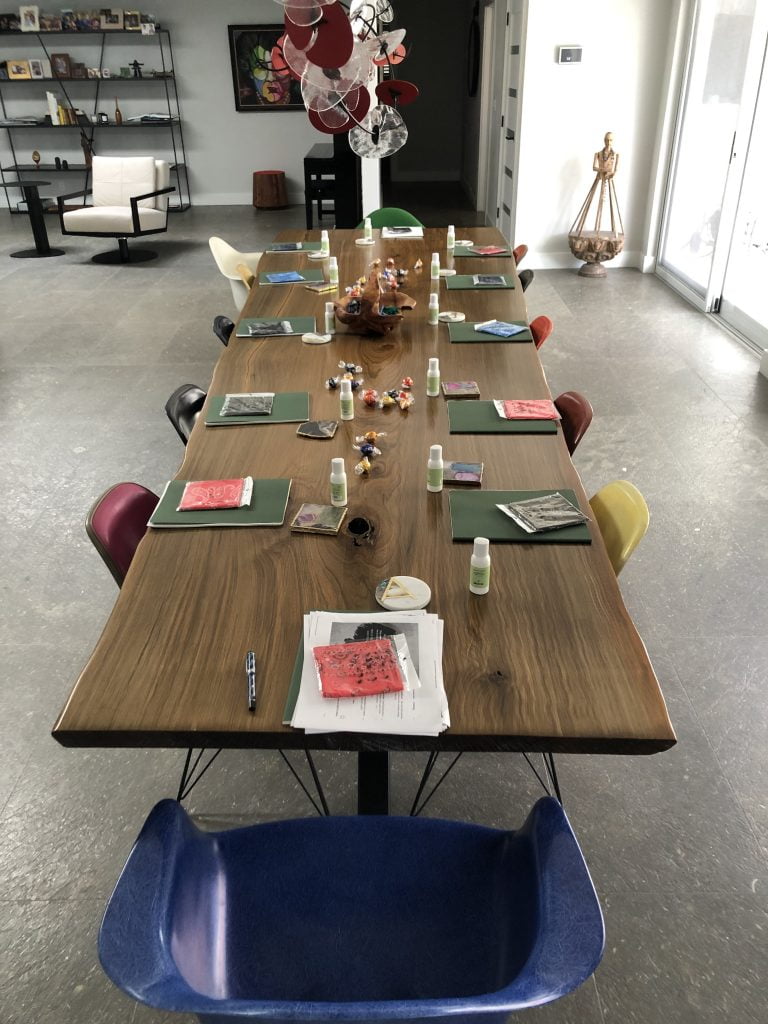Workshops

Most of my workshops (loosely) follow the Amherst Writers and Artists Workshop method, based on Pat Schneider’s Writing Alone and With Others, with its emphasis on the Five Essential Affirmations and the Five Essential Practices:
The Five Essential Affirmations:
These affirmations rest on a definition of personhood that is nonhierarchical, and a definition of writing as an art form available to all persons.
1. Everyone has a strong, unique voice.
2. Everyone is born with creative genius.
3. Writing as an art form belongs to all people, regardless of economic class or educational level.
4. The teaching of craft can be done without damage to a writer’s original voice or artistic self-esteem.
5. A writer is someone who writes.
The Five Essential Practices:
1. A nonhierarchical spirit (how we treat writing) in the workshop is maintained while at the same time an appropriate discipline (how we interact as a group) keeps writers safe.
2. Confidentiality about what is written in the workshop is maintained, and the privacy of the writer is protected. All writing is treated as fiction unless the writer requests that it be treated as autobiography. At all times writers are free to refrain from reading their work aloud.
3. Absolutely no criticism, suggestion, or question is directed toward the writer in response to first-draft, just-written work. A thorough critique is offered only when the writer asks for it and distributes work in manuscript form. Critique is balanced; there is as much affirmation as suggestion for change.
4. The teaching of craft is taken seriously and is conducted through exercises that invite experimentation and growth as well as through response to manuscripts and in private conferences.
5. The leader writes along with the participants and reads that work aloud at least once in each writing session. This practice is absolutely necessary, for only in this way is there equality of risk taking and mutuality of trust.
